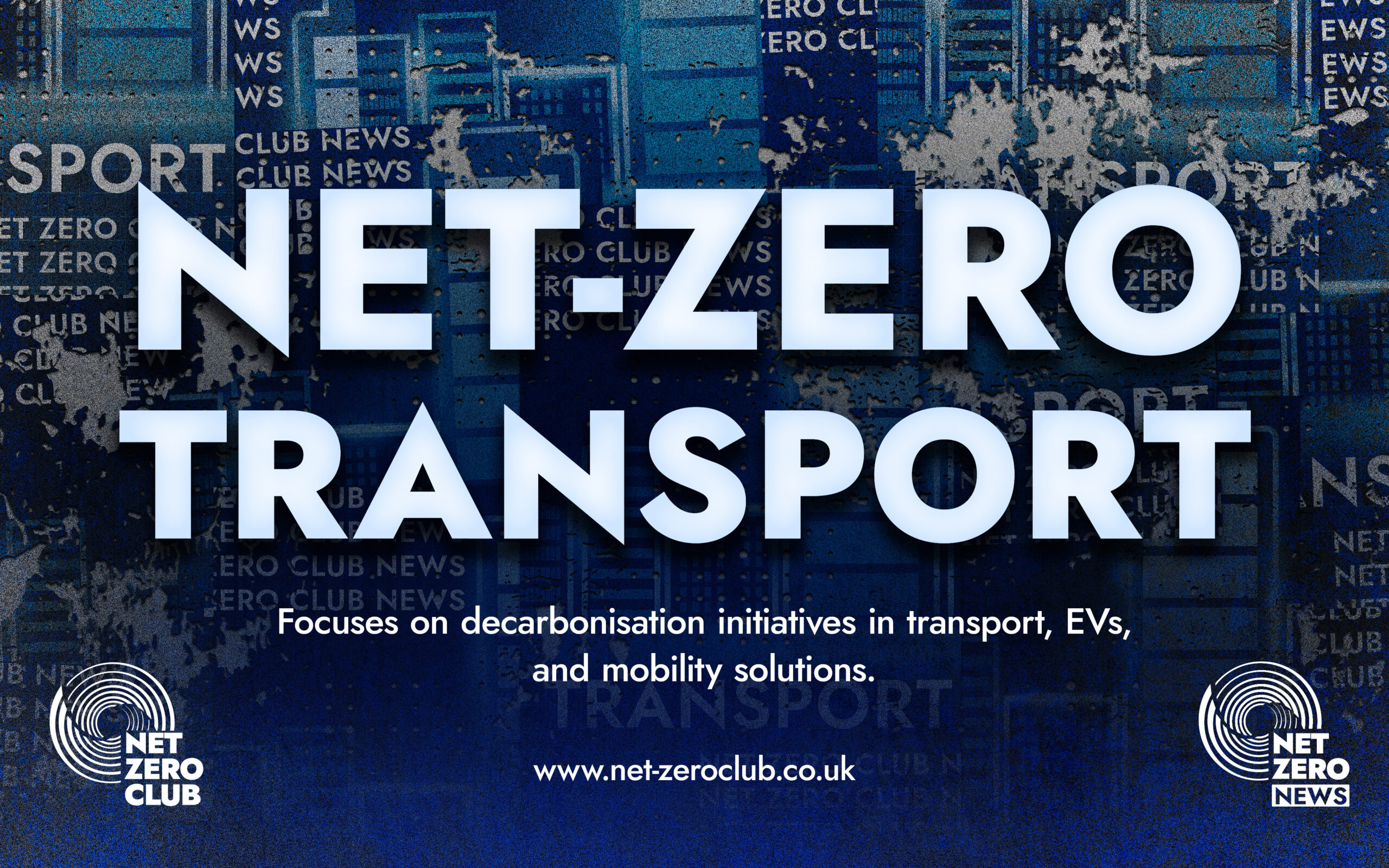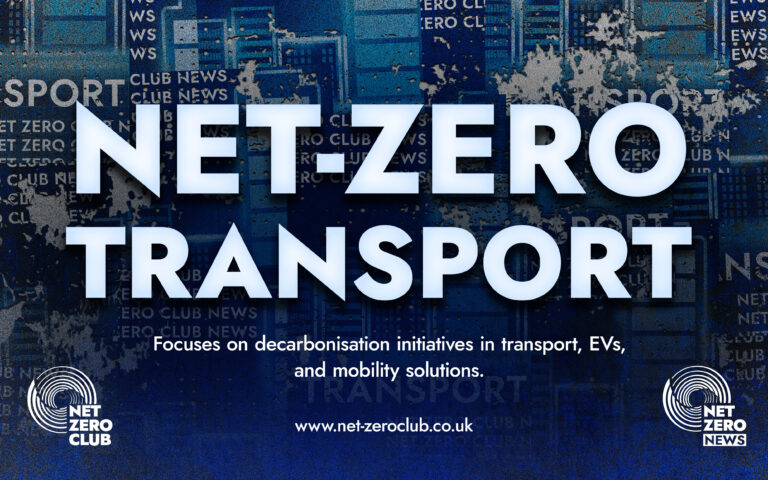Fleet Sales Surge 16.9% as EV Sales Soar This September

Greetings, Net Zero News Community,
The UK’s new car market has made an impressive comeback this September, achieving its best performance in five years, propelled by a surge in demand for electric vehicles and fleet registrations. Preliminary data from the Society of Motor Manufacturers and Traders (SMMT) indicates that a remarkable total of 312,887 new cars were registered last month. This marks the strongest performance for the all-important ‘new number plate’ month since September 2020, which, despite the constraints of lockdown, remains the best so far this decade.
Across the board, the growth was evident, but the most significant gains were observed in the fleet sector, where demand soared by 16.9%, resulting in 174,335 units registered. In contrast, the private consumer market also showed positive trends, with an 8.9% increase, reaching 131,000 units. Interestingly, registrations for businesses with smaller fleets (fewer than 25 vehicles) jumped by 28.6%, totalling 7,552 deliveries.
Notably, more than half (50.8%) of all new vehicles registered during the month were electrified, highlighting a pivotal shift in consumer preferences. Battery electric vehicle (BEV) registrations alone grew by 29.1%, achieving an unprecedented 72,779 registrations, which accounted for 23.3% of the market. Additionally, plug-in hybrids (PHEVs) emerged as the fastest-growing powertrain, boasting a 56.4% increase and capturing a 12.2% market share. Hybrid electric vehicles (HEVs) also saw a notable rise of 23.5%, comprising 15.3% of total deliveries.
September’s robust performance is particularly crucial as this month typically accounts for approximately one in seven annual registrations. The positive results serve as a much-needed boost following a summer slowdown, indicating a resilient recovery in the automotive sector. Year-to-date, the sector has experienced a 4.2% increase, with the fleet sector up by 3.8%. Notably, BEV demand has surged by 29.1%, representing over one in five (22.1%) new cars registered so far this year.
The SMMT attributes the bumper results to a combination of manufacturer investments, an expanding model choice, and the newly introduced Electric Car Grant. Mike Hawes, SMMT chief executive, remarked, “Electrified vehicles are powering market growth after a sluggish summer – and with record ZEV uptake, massive industry investment is paying off, despite demand still trailing ambition. The Electric Car Grant will help to break down one of the barriers holding back more drivers from making the switch – and tackling remaining roadblocks, by unlocking infrastructure investment and driving down energy costs, will be crucial to the success of the industry and the environmental goals we share.”
Among the standout performers this month was BYD, which achieved an astonishing 11,271 cars sold in September. This marks an impressive rise of 880% compared to the same month last year, allowing BYD to surpass established brands like Renault and SEAT. Thus far, BYD’s sales in the third quarter have exceeded 16,000 units, a significant increase from 10,000 in the second quarter of this year, bringing total sales in 2025 to just over 35,000. The Chinese automotive giant has swiftly captured a 2% share of the new car market in just two years, with its market share strengthening to 3.6% in September and 2.2% year-to-date.
The BYD Seal U DM-i SUV continues to dominate the sales charts for the brand, currently ranked as the UK’s best-selling PHEV year-to-date. Notably, BYD also secured its position as the UK’s second best-selling brand for pure electric sales in September.
Another notable player, Omoda & Jaecoo UK, has marked its strongest performance to date, surpassing 10,800 combined registrations (10,812) in September. This achievement comes just over a year after Omoda made its debut in the UK market and merely eight months since the launch of Jaecoo UK.
Geoff Hurst, senior director for automotive advisory at NTT DATA UK & I, commented on the significant growth in electric vehicle registrations: “While it is promising to see growth in electric car registrations in September, which is at its highest for this month since September 2020, it also does not come as a surprise, given the rapidly developing nature of this market. What’s most significant is the cause of this rise in EV sales, which is down to the emergence of new market challengers.”
He further highlighted, “With BYD entering the UK’s top ten most sold cars of the month for the first time, and Jaecoo making its second appearance after ranking as the 6th most registered car in August, we’re witnessing clear evidence of Chinese brands starting to disrupt the current market. Their combination of competitive pricing and improving quality resonates with UK buyers who are typically less brand loyal and more motivated by value.”
This shift in consumer behaviour should serve as a wake-up call to established manufacturers in the UK. As Chinese brands build credibility and scale, the market will only become more competitive. Engaging in a pricing war will not be sustainable; premium brands must focus on cultivating loyalty and delivering enhanced value through customer experience, innovation, and service to keep pace. Otherwise, they risk losing significant market share to these emerging Chinese challenger brands.
In terms of European brands, Volvo celebrated its best September on record, with new car registrations up by 23% compared to September 2024. The XC40 emerged as the most popular model for the brand, while the UK became the largest market globally for sales of the all-electric EX30. Volvo further solidified its market position with a 3.7% share, the highest September figure ever recorded for the carmaker. Year-to-date, Volvo’s market share in the UK stands at 3.28%.
Cupra also enjoyed a successful month, reporting its best-ever September sales results since tracking began in 2016. The brand recorded 6,062 sales in September, reflecting a 28.8% increase compared to the same period last year, which saw 4,706 units sold. This significant figure marks a milestone for SEAT and Cupra, capturing an overall market share of 3.2%.
As the market transitions, Jon Lawes, managing director at Novuna Vehicle Solutions, commented on the evident changes. “EVs are taking a larger share even as overall volumes fluctuate. Charging rollout is accelerating past 85,000 devices, making infrastructure concerns less of an issue. The biggest risks are on affordability and certainty. What the market needs now is policy consistency and a pragmatic stance on import tariffs. The ZEV mandate must go hand-in-hand with industrial strategy – otherwise, we hit the numbers but lose domestic capacity. Keep policy steady, keep costs predictable, and demand will follow.”
Russell Olive, UK director at charging management software company Vaylens, added to the discussion, stating, “September’s rise in new vehicle registrations shows a shiny new ‘75’ plate still has pulling power.” He remarked, “Some potential buyers have been motivated by the Government’s EV discount scheme. However, it’s businesses that are the driving force behind electrification, despite rising insurance costs, grid capacity limits at depots, and unpredictable public charging costs.”
Olive emphasised the challenges businesses face: “Buying a new EV isn’t the hard part of electrification for a business. The hard part is knowing which parts of the fleet are ready now, and where the risks are. For instance, we often see businesses surprised by the extra costs of upgrading grid connections or managing payload limits once heavier EVs are introduced. To maintain progress, companies need support with careful fleet analysis, practical infrastructure planning, and the right software to manage charging and energy across sites.”
However, Susan Wells, director of EV & solar at Hive, cautioned that charging infrastructure is struggling to keep pace with the increasing uptake of EVs. “Our Hive Home Report shows nearly half of drivers tell us their area doesn’t have enough charge points, underlining the urgent need for the Government to adopt a more forward-looking approach to ensure the UK’s roads and infrastructure are EV-ready.”
Wells concluded, “Collaboration will be key – not only with councils and local authorities but also with charger manufacturers and installers – to create the robust charging network needed to support and encourage the future of sustainable travel.”
As we look to the future, it is clear that the UK automotive market is undergoing a transformative phase. With record numbers of electric vehicles taking to the roads and a growing range of options available to consumers, the shift towards sustainability is not merely a trend but a fundamental change in the landscape of transportation. It is our collective responsibility to ensure that this transition is supported by adequate infrastructure and thoughtful policies, paving the way for a cleaner, greener future.
Stay tuned for more updates as we continue to track the progress of the UK automotive sector in its journey towards net zero.
Yours in sustainability,
The Net Zero News Team

 Got net-zero news, project updates, or product launches to share?
Got net-zero news, project updates, or product launches to share? 